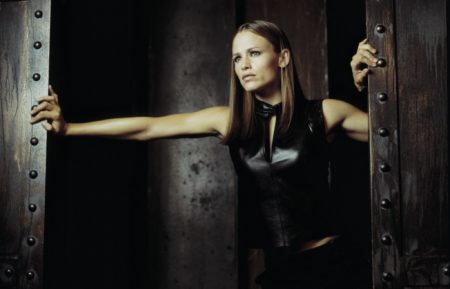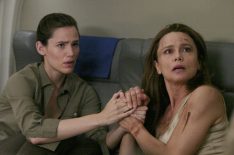Lena Olin
Credits

The Darkness
Actor
Detective Inspector Hulda Hermannsdóttir
Show
2024

SpacemanStream
Actor
Zdena
Movie
2024

Parneviks All In
Self
Show
2023

Andra akten
Actor
Eva
Movie
2023
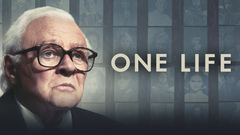
One LifeStream
Actor
Grete Winton
Movie
2023

UpgradedStream
Actor
Catherine Laroche
Movie
2023

Tolvslaget från Skansen
Guest
Show
2022

Mitt liv som Lasse Hallström
Self
Show
2022

Hilma
Actor
Hilma
Movie
2022

Tilde
Guest
Show
2021

Carina Bergfeldt
Guest
Show
2021

HuntersStream
Actor
The Colonel
Series
2020

Cacciatori
Actor
The Colonel
Show
2020

Adam
Actor
Yevgeniya
Movie
2020

Igry sudby
Actor
Movie
2020

The Artist's Wife
Actor
Claire Smythson
Movie
2019

Bergman revisited
Actor
Show
2018

Intensive Care
Actor
Margaret
Movie
2018

Bergmans Reliquarium
Actor
Movie
2018

MindhunterStream
Guest Star
Annaliese Stilman
Series
2017

RivieraStream
Actor
Irina Clios
Series
2017

Tillsammans med Strömstedts
Guest
Show
2017

Maya Dardel
Actor
Maya
Movie
2017

Welcome to SwedenStream
Actor
Viveka Wiik
Series
2014

The Devil You Know
Actor
Kathryn Vale
Movie
2013

Night Train to Lisbon
Actor
Estefânia
Movie
2013

Home & Family
Guest
Talk
2012

Hypnotisören - bakom kulisserna
Guest
Show
2012

Hypnotisören
Actor
Simone Bark
Movie
2012

Remember MeStream
Actor
Diane Hirsch
Movie
2010

Skavlan
Guest
Show
2009

The ReaderStream
Actor
Rose Mather/Ilana Mather
Movie
2008

Awake
Actor
Lilith Beresford
Movie
2007

Sverige!
Guest
Show
2005

CasanovaStream
Actor
Andrea Bruni
Movie
2005

Bang Bang Orangutang
Actor
Nina
Movie
2005

Hollywood HomicideStream
Actor
Ruby
Movie
2003

The United States of LelandStream
Actor
Marybeth Fitzgerald
Movie
2003

Queen of the DamnedStream
Actor
Maharet
Movie
2002

Ignition
Actor
Judge Faith Mattis
Movie
2002

Darkness
Actor
Maria
Movie
2002

AliasStream
Actor
Irina Derevko/Laura Bristow
Series
2001

AliasStream
Guest Star
Irina Derevko/Laura Bristow
Series
2001

Hamilton
Actor
Tessie
Show
2001

ChocolatStream
Actor
Josephine Muscat
Movie
2000

Law & Order: Special Victims UnitStream
Guest Star
Ingrid Block
Series
1999

Mystery Men
Actor
Dr. Annabel Leek
Movie
1999

The Ninth GateStream
Actor
Liana Telfer
Movie
1999

Polish Wedding
Actor
Jadzia
Movie
1998

Hamilton
Actor
Tessie
Movie
1998

Go'kväll
Guest
Show
1997

Night Falls on ManhattanStream
Actor
Peggy Lindstrom
Movie
1996

The Night and the Moment
Actor
The Marquise
Movie
1994

Romeo Is Bleeding
Actor
Mona Demarkov
Movie
1993

Mr. Jones
Actor
Dr. Elizabeth 'Libbie' Bowen
Movie
1993

Havana
Actor
Bobby Duran
Movie
1990

S/Y Gladjen
Actor
Annika Larsson
Movie
1989

Enemies, a Love StoryStream
Actor
Masha
Movie
1989

The Unbearable Lightness of BeingStream
Actor
Sabina
Movie
1988

Friends
Actor
Sue
Movie
1988

Pako pohjoiseen
Actor
Movie
1986

After the Rehearsal
Actor
Older Anna Egerman
Movie
1984

Fanny and AlexanderStream
Actor
Rosa
Movie
1982

Gräsänklingar
Actor
Nina
Movie
1982

Les Folles aventures de Picasso
Actor
Dolores
Movie
1978
News aboutLena Olin
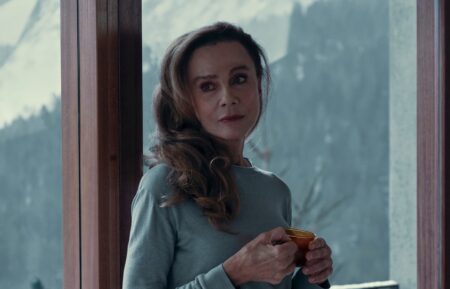
Spoiler Alert
‘Nine Perfect Strangers’: Lena Olin Reveals Her Reaction to That Death Shocker

‘Nine Perfect Strangers’ Season 2 Trailer Reveals an Icy (& Terrifying) New Retreat

See the ‘Nine Perfect Strangers’ Season 2 Ensemble in Action (PHOTOS)
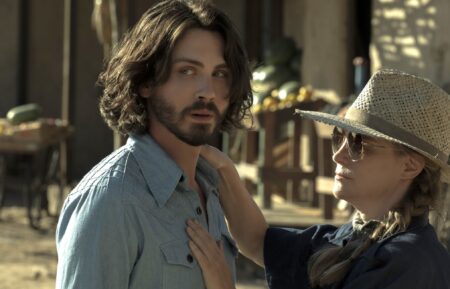
Logan Lerman & ‘Hunters’ Team Are Back for Revenge in Full Season 2 Trailer (VIDEO)
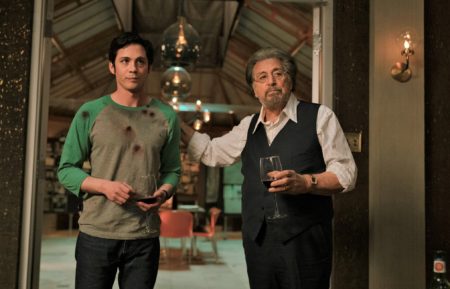
‘Hunters’ Ending With Season 2 at Prime Video, Al Pacino Will Return — Here’s When It Premieres
